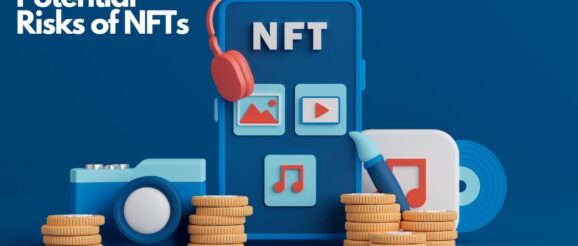True Innovation vs. Pseudo: China’s Prosecutors Take on NFT Market Risks

The Supreme People’s Procuratorate of the People’s Republic of China recently shared its thoughts on the non-fungible token (NFT) market. In an article, three authors outlined the prosecutors’ vision of the market risks. Moreover, the reasons to combat them more actively. They paid attention to the tendency of “securitization” of NFTs. The shared ownership of one copy by multiple users, no longer corresponds to criteria of non-reproducibility, indivisibility and uniqueness. The article also discussed the potential risks of NFTs, such as money laundering, fraud, and illegal fundraising. Lastly, proposed measures to combat these risks. It was concluded that the NFT market should be regulated and supervised in order to protect the legitimate rights and interests of investors.
Inflated Prices of NFTs: The Prosecutors’ Perspective
Both excitement and apprehension have been met with the rise of non-fungible tokens (NFTs). Prosecutors are concerned about marketing methods leading to the “inflation of prices” on NFTs. Those are airdrops, blind boxes, limited sales and rewards. Taking a strange blend of aesthetic and economic analysis, the authors mention a lack of “artistic beauty” and “reasonable pricing mechanism” behind the inflated prices of some nonfungibles. In addition, the agency warns against marketing models such as dynamic rights and interests. This can quickly evolve into illegal pyramid schemes. Buyers should be aware of how prices can be artificially inflated. Moreover, how to spot red flags that indicate a potential case of fraud.
Enhancing Governance and Protecting Innovations
The rapid development of new technologies has brought a number of risks to society. To mitigate these risks, the Chinese government has proposed a three-pronged approach. These includes cracking down on criminal activities, equal emphasis on punishment and governance, and investment in risk research and law popularization. True innovation will be protected from pseudo-innovations by this approach, which will also strengthen governance. Furthermore, national prosecutors will be taking on a mission to differentiate between the two and protect true innovation. China will equip better with these measures to protect against the risks associated with technological developments. Meanwhile, at the same time promoting innovation.
China’s Strict Stance on Cryptocurrency and AI: A Crackdown on Pseudo-Innovation
Despite the steady progress of crypto adoption in Hong Kong, China has maintained its hostile stance on cryptocurrency and artificial intelligence. Authorities in the Gansu district of China arrested a suspect in early May for allegedly using ChatGPT to generate fake news stories. Chinese prosecutors have warned of the financial, security and legal risks associated with the NFT market and call for comprehensive governance to combat what they refer to as “pseudo-innovation”. China’s approach to cryptocurrency and AI appears to be one of precaution, with an emphasis on regulation and enforcement to ensure the safety of its citizens.
Disclaimer: Cryptocurrency trading involves significant risks and may result in the loss of your capital. You should carefully consider whether trading cryptocurrencies is right for you in light of your financial condition and ability to bear financial risks. Cryptocurrency prices are highly volatile and can fluctuate widely in a short period of time. As such, trading cryptocurrencies may not be suitable for everyone. Additionally, storing cryptocurrencies on a centralized exchange carries inherent risks, including the potential for loss due to hacking, exchange collapse, or other security breaches. We strongly advise that you seek independent professional advice before engaging in any cryptocurrency trading activities and carefully consider the security measures in place when choosing or storing your cryptocurrencies on a cryptocurrency exchange.
The post True Innovation vs. Pseudo: China’s Prosecutors Take on NFT Market Risks appeared first on Boxmining.
